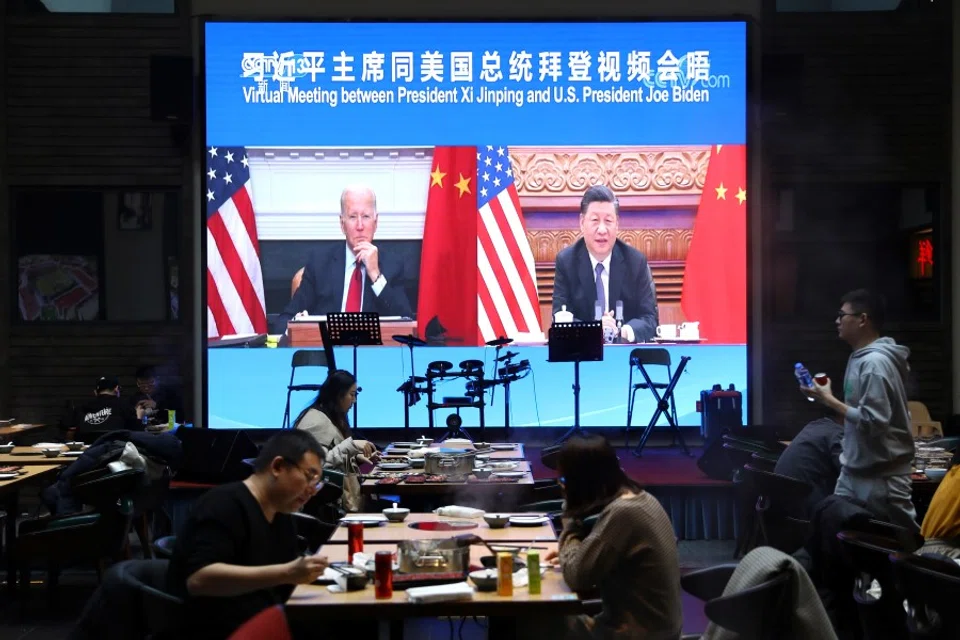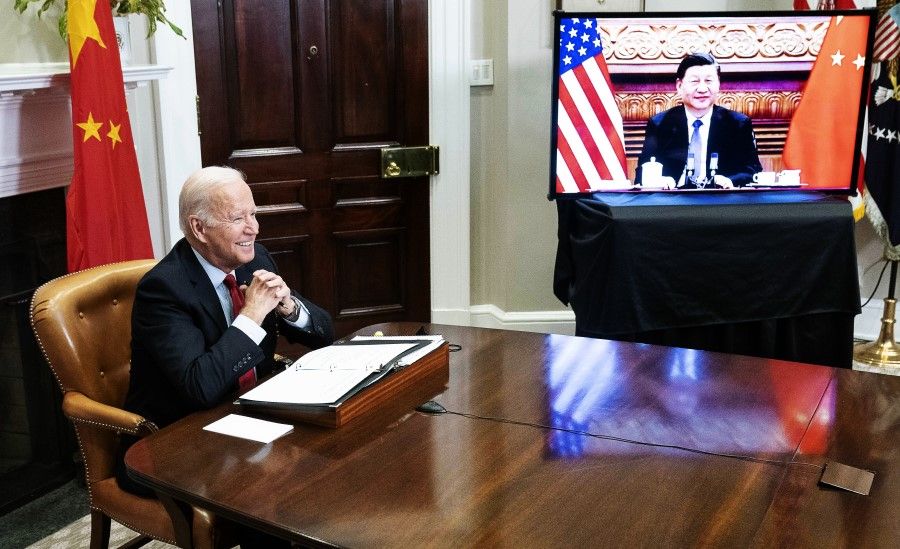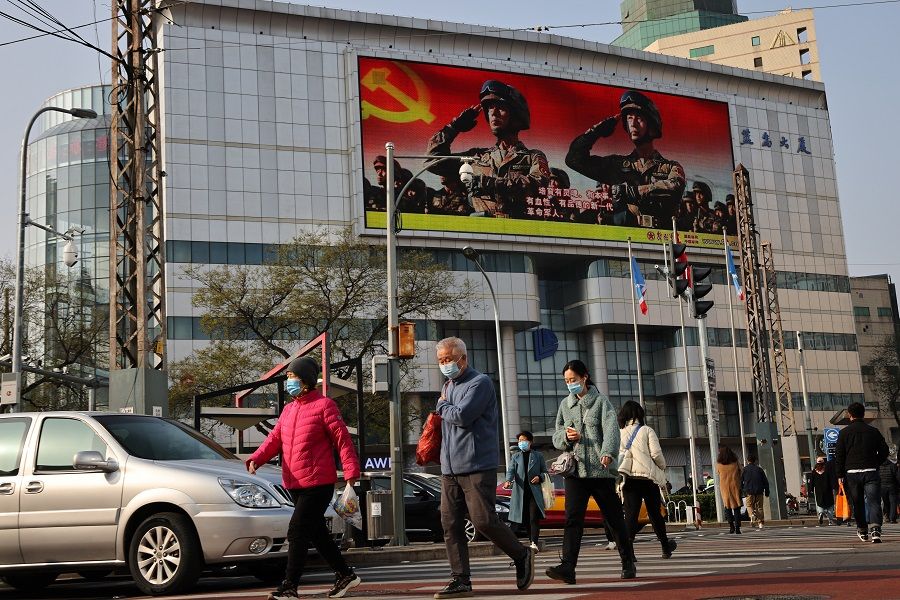Xi-Biden virtual summit: Only a 'more polite' meeting

In his virtual summit discussion with US President Joe Biden, Chinese President Xi Jinping compared China and the US to "two giant ships sailing in the ocean", while in his opener, Biden referred to China and the US as "major world leaders". Some academics feel that there has been a slight change in Biden and Xi's definition of China-US relations, and this meeting could mark an easing of relations.
On 6 March, at a joint group meeting involving the education, medical and health sectors during the Two Sessions, Xi described China's current international status as being able to "view the world on an equal level", or on an equal footing. And in July, Chinese State Councilor and Foreign Minister Wang Yi met with US Deputy Secretary of State Wendy Sherman, where he drew three "redlines" that should not be crossed, and warned that the US should not try to obstruct or block off China's progress.
Biden in his opening remarks clearly acknowledged China's status as a world power. To China, this was a "very important statement". - Cheng Xiaohe, School of International Studies, Renmin University of China
Cheng Xiaohe of the School of International Studies at Renmin University of China said Biden in his opening remarks clearly acknowledged China's status as a world power. To China, this was a "very important statement", showing Biden's recognition of the equal status of China and the US as world powers, while Xi's "giant ship" analogy was also in line with Biden's comments.

In his opening remarks, Biden said: "It seems to me we need to establish some commonsense guardrails, to be clear and honest where we disagree, and work together where our interests intersect, especially on vital global issues like climate change.
"None of this is a favor to either of our countries - what we do for one another - but it's just responsible world leadership."
He told Xi: "You're a major world leader, and so is the United States."
As stated in the Chinese Ministry of Foreign Affairs' press release, Xi described China and the US as "two giant ships sailing in the ocean", and said that it was important for both sides to "keep a steady hand on the tiller" so that the two giant ships would break waves and forge ahead together, without losing direction or speed, much less colliding with each other.
While the basic state of China-US competition remains unchanged, Professor Cheng notes that the US has repeatedly emphasised that differences between the two countries must be managed, and Xi's comparison of China and the US as "two giant ships" also demonstrates that China hopes that conflict can be avoided. Thus, this meeting can be said to indicate that China-US relations are easing.
...the problems that have accumulated over the years are difficult to solve and the US's domestic assessments of China remain unchanged. - Professor Wang Zheng, director of Seton Hall University's Center for Peace and Conflict Studies

However, Professor Wang Zheng, director of Seton Hall University's Center for Peace and Conflict Studies, said that while the meeting can help to stabilise China-US relations in the short term, the outlook for bilateral ties still does not look optimistic in the long term.
In his view, this meeting was an important one to bring China-US relations back to a rational, crisis management mode after they took a beating from nationalism and populism in recent years. But the problems that have accumulated over the years are difficult to solve and the US's domestic assessments of China remain unchanged. Under the pressure of the US's mid-term elections next year, it is difficult to imagine that the Biden administration would make drastic changes to its China policy in the near future. "Thus, I am afraid it is difficult for the people to harbour hopes for this meeting," he explained.
Both sides are just being "more polite" with each other as compared to their Alaska meeting in March this year. - Shi Yinhong, a retired professor of international relations at Renmin University of China
Shi Yinhong, a retired professor of international relations at Renmin University of China, also thinks that the US's basic China policy framework and attitude towards China have not changed. Coupled with the fact that China's position on a series of major issues remains the same, one should remain cautious when evaluating the outcome of this summit.
Numerous analysts have interpreted the friendly start to the Xi-Biden meeting as a positive sign. However, said Professor Shi, both sides are just being "more polite" with each other as compared to their Alaska meeting in March this year. This does not imply that the attitudes that China and the US have of each other have substantially changed. Related: Will a Biden-Xi virtual summit change anything? | Biden's impressive 'three-in-one' policy to deal with China | Bumpy ride ahead for US-China relations after the US elections | If Xi Jinping and Joe Biden meet this week, it won't be just about climate change
